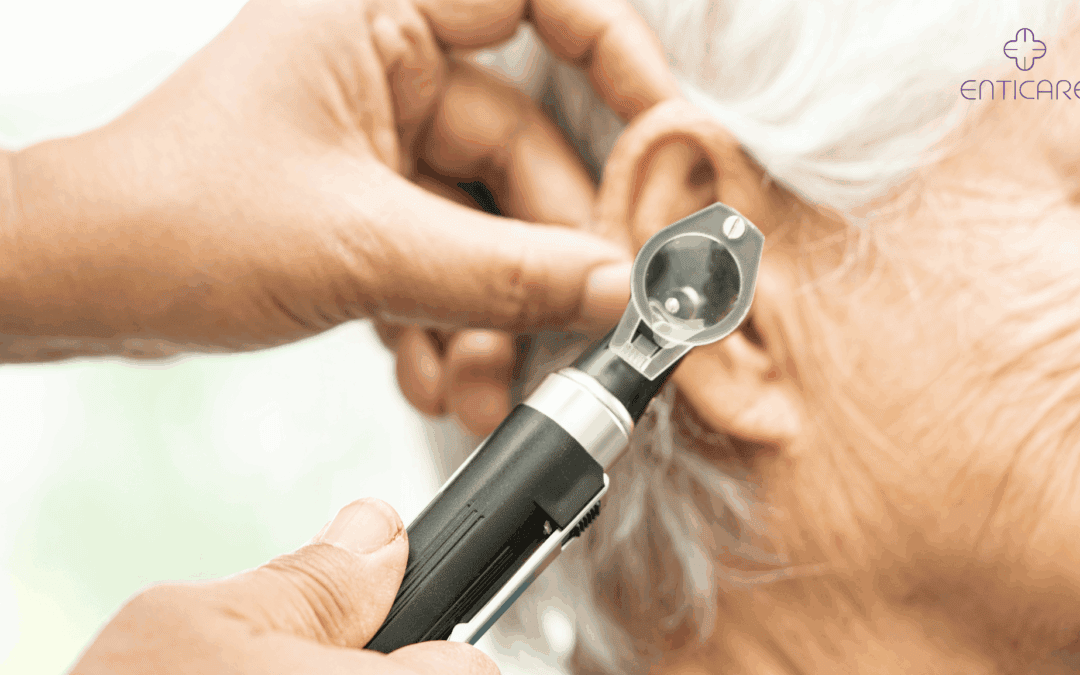When you face hearing loss, it feels overwhelming to navigate. However, asking the right questions can empower you toward better hearing health. Below, we break down ten key questions you should ask your audiologist. Understanding these essentials can help you get the most out of your appointments, make informed decisions, and take proactive steps toward optimal hearing.

Why Asking Questions Matters
Hearing health is often overlooked, but it impacts your quality of life unexpectedly. Simple questions lead to better understanding and help guide you in the best direction for your hearing health. From understanding the underlying causes to exploring treatment options, the information you gather equips you for a successful journey toward improved hearing.
Gaining Valuable Insights About Hearing Loss
What Type of Hearing Loss Do I Have?
Knowing the type of hearing loss helps to pinpoint the treatment options that suit you best.
- Sensorineural vs. Conductive Hearing Loss
- Sensorineural hearing loss, the most common type, occurs from damage to the inner ear or the auditory nerve. In contrast, conductive hearing loss arises when sound cannot reach the inner ear due to blockages or abnormalities. Identifying the type determines how your audiologist will approach your treatment plan. Learn more about the types of hearing loss here.
- Mixed Hearing Loss
- Mixed hearing loss combines sensorineural and conductive hearing loss elements, requiring a tailored approach. Make sure to ask your audiologist if this may apply to your condition.
- Understanding Sudden vs. Gradual Hearing Loss
- Sudden hearing loss often indicates a medical emergency, while gradual hearing loss may stem from age or prolonged noise exposure. Recognizing the onset can help your audiologist diagnose and recommend timely treatment.
What Caused My Hearing Loss?
Understanding the cause of your hearing loss can impact the treatment strategy.
- Noise-Induced Hearing Loss
- Excessive noise exposure, whether through work or recreational activities, contributes significantly to hearing loss. Ask if past noise exposure plays a role in your condition.
- Age-Related Hearing Loss
- Presbycusis, the natural decline in hearing with age, affects many as they age. If this applies to you, understanding its progression helps manage expectations.
- Medical Conditions Impacting Hearing
- Certain health conditions, like diabetes or high blood pressure, may contribute to hearing loss. Discussing relevant medical history with your audiologist can illuminate possible causes and preventative measures. Find additional details on conditions related to hearing loss here.
How Will This Affect My Daily Life?
A deeper understanding of how hearing loss affects daily life will help you adapt and find solutions that support your lifestyle.
- Impact on Social Interaction
- Hearing loss often strains social activities, causing misunderstandings or missed conversations. Asking your audiologist about strategies to improve communication can help you stay connected with loved ones.
- Workplace Adjustments
- Hearing loss affects performance in various jobs. Many workplaces offer accommodations for employees with hearing loss, so asking about your rights and options could be beneficial.
- Emotional Well-Being
- Untreated hearing loss can lead to isolation, anxiety, and depression. If you notice emotional shifts, your audiologist may guide you on support systems that ease these changes.
Exploring Solutions and Preventative Options
What Are My Treatment Options?
Treatment options vary depending on the severity and type of hearing loss, so exploring these with your audiologist will help you find a suitable fit.
- Hearing Aids
- Hearing aids are a common solution that improves hearing by amplifying sound. Audiologists customize these devices to fit your hearing profile, providing options in design and technology that support your lifestyle.
- Cochlear Implants
- Cochlear implants offer an alternative to hearing aids for profound hearing loss. They bypass damaged parts of the ear and stimulate the auditory nerve directly. Audiologists can assess whether cochlear implants suit your needs.
- Surgical Options
- In some instances, surgery might restore hearing. Procedures like earwax removal or repairing the eardrum alleviate conductive hearing issues. Discussing these options helps you consider all possibilities. Check out further information on hearing treatments.
What Types of Hearing Aids Are Available?
Hearing aid technology has evolved dramatically, and understanding the available options will help you choose one that fits your life.
- Behind-The-Ear (BTE) Hearing Aids
- BTE hearing aids sit comfortably behind the ear, providing more power for severe hearing loss. These often work well for individuals looking for a durable and high-performing option.
- In-The-Canal (ITC) Hearing Aids
- ITC hearing aids sit in the ear canal and are less visible, making them ideal for those seeking a more discreet option. However, these work best for mild-to-moderate hearing loss.
- Rechargeable and Bluetooth-Compatible Models
- Recent advancements include rechargeable models and Bluetooth-compatible devices that sync with smartphones and other technology. Asking about these features may give you added convenience and connectivity.
Can My Hearing Loss Get Worse, and How Can I Prevent It?
Understanding how to protect your hearing is essential for preventing further hearing loss and maintaining quality of life.
- Noise Protection
- Exposure to loud sounds accelerates hearing loss. Your audiologist can recommend ear protection, such as earplugs or earmuffs, especially if you work in noisy environments.
- Healthy Lifestyle Choices
- Lifestyle choices, like managing stress, maintaining a balanced diet, and controlling blood pressure, support ear health. Discussing these choices with your audiologist can prevent worsening conditions.
- Regular Hearing Check-Ups
- Regular check-ups detect early changes in hearing. These exams are vital for anyone exposed to noise regularly or who is noticing even slight hearing changes. Review more on hearing loss prevention.

Planning Your Path to Better Hearing
What Can I Expect From a Hearing Test?
A hearing test provides a comprehensive look at your hearing health and offers insights that guide your treatment options.
- The Audiometry Process
- Audiometry tests measure hearing across different sound frequencies and volumes. Understanding what to expect from the process can ease anxiety about the test.
- Otoscopy Examination
- Otoscopy allows audiologists to examine the ear canal and eardrum for visible issues, such as earwax buildup. Learning about these exams can help you feel more comfortable with the process.
- Speech Testing
- Speech testing assesses your ability to recognize speech in different environments, allowing your audiologist to recommend solutions based on how well you process sounds.
How Long Will It Take to Adjust to Hearing Aids?
Adjusting to hearing aids varies among individuals, so knowing what to expect can make the transition smoother.
- Adaptation Period
- It takes time to get used to hearing aids as your brain adjusts to new sounds. Ask your audiologist about tips for a smooth adaptation process and what adjustments they can offer.
- Follow-Up Appointments
- Regular follow-ups allow for necessary adjustments, especially in the initial stages. Your audiologist will monitor your progress and help with any discomfort.
- Using Accessories and Tools
- Accessories like remote controls and volume adjustments can aid in the adjustment process, giving you greater control over your hearing experience.
Are There Risks of Untreated Hearing Loss?
Leaving hearing loss untreated can lead to adverse health consequences.
- Cognitive Decline
- Studies show a link between hearing loss and cognitive decline, making treatment vital for overall mental health. Understanding these risks encourages proactive treatment. Discover more about hearing loss and cognitive health here.
- Increased Risk of Falls
- Hearing loss affects balance, increasing the risk of falls. Your audiologist may offer recommendations to mitigate this risk.
- Impact on Relationships
- Untreated hearing loss can strain relationships as communication challenges arise. Discussing these concerns with your audiologist can help you find ways to preserve important connections.
What Resources Are Available for Support?
Learning about additional support resources keeps you informed and engaged in your hearing health journey.
- Support Groups
- Many communities offer support groups for those with hearing loss. These groups provide social connections and practical advice for navigating hearing challenges.
- Hearing Aid Insurance Options
- Some insurance plans cover hearing aids, reducing financial stress. Your audiologist may know about coverage options that are available to you.
- Educational Resources
- Many online resources provide ongoing education about hearing health and assistive technology so you stay informed and proactive.
Start Your Hearing Health Journey Today
Hearing loss doesn’t have to hold you back. Asking your audiologist these questions ensures a personalized approach, better treatment, and a path toward improved hearing. Take control of your hearing health today by scheduling an appointment with an audiologist who cares. Click here to schedule your consultation with Medicare.

